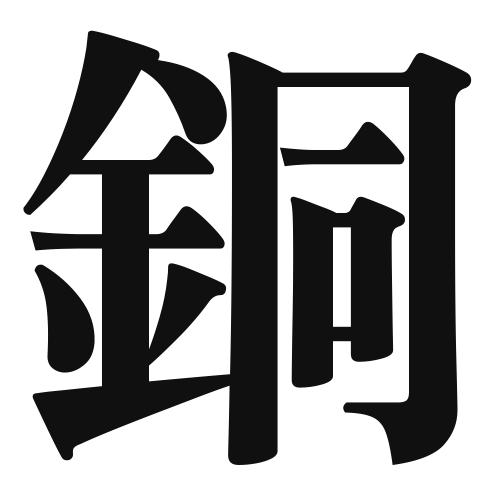1. Overview of Meaning
The kanji “銅” (pronounced “dou” in Japanese) means “copper.” It represents the metal that is widely used in various applications, including electrical wiring, plumbing, and decorative arts.
2. Formation and Radical
Formation of the Kanji: The kanji “銅” is a phonetic compound (形声文字) that combines the radical for metal (金) with the phonetic component “道” (dou), which contributes to its pronunciation.
Radical: The radical for “銅” is 金 (metal), indicating that it is related to metals and minerals.
3. Examples of Usage
Common Words and Phrases:
- 銅線 (どうせん, dousen) – copper wire
- 銅貨 (どうか, douka) – copper coin
Example Sentence in Daily Conversation:
この家の配線は銅線でできています。
(Kono ie no haisen wa dousen de dekiteimasu.)
This house’s wiring is made of copper wire.
4. Synonyms and Antonyms
Similar Kanji:
- 金 (きん, kin) – gold: While both are metals, gold is more valuable and has different uses compared to copper.
- 鉄 (てつ, tetsu) – iron: Iron is another metal, but it is heavier and has different properties than copper.
Antonym: There are no direct antonyms for “銅,” but in terms of value, one might consider “金” (gold) as an opposite in terms of worth.
5. Cultural and Historical Background
Relation to Japanese Culture: Copper has been used in Japan for centuries, especially in traditional crafts and tools. It is often associated with durability and craftsmanship.
Proverbs and Idioms:
- 銅のように柔らかい (どうのようにやわらかい, dou no you ni yawarakai) – as soft as copper: This phrase is used to describe something that is easily influenced or not very strong.
